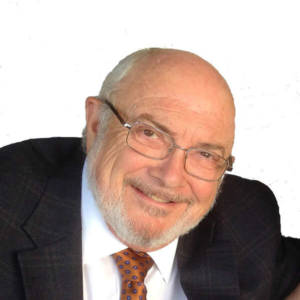Friday Filosophy v.01.07.2022
Alexander Graham Bell was born in Edinburgh, Scotland. His family was known for teaching people how to speak English clearly (elocution). Both his grandfather, Alexander Bell, and his father, Alexander Melville Bell, taught elocution. His father wrote often about this and is most known for his invention and writings of Visible Speech.[1] In his writings he explained ways of teaching people who were deaf and unable to speak. It also showed how these people could learn to speak words by watching their lips and reading what other people were saying.
Alexander Graham Bell went to the Royal High School of Edinburgh. He graduated at the age of fifteen. At the age of sixteen, he got a job as a student and teacher of elocution and music in Weston House Academy, at Elgin in Morayshire. He spent the next year at the University of Edinburgh. While still in Scotland, he became more interested in the science of sound (acoustics). He hoped to help his deaf mother. From 1866 to 1867, he was a teacher at Somersetshire College in Bath, Somerset.
In 1870 when he was 23 years old, he moved with his family to Canada where they settled at Brantford, Ontario. Bell began to study communication machines. He made a piano that could be heard far away by using electricity. In 1871 he went with his father to Montreal, Quebec in Canada, where he took a job teaching about “visible speech“. His father was asked to teach about it at a large school for deaf mutes in Boston, Massachusetts, but instead he gave the job to his son. The younger Bell began teaching there in 1872. Alexander Graham Bell soon became famous in the United States for this important work. He published many writings about it in Washington, D.C.. Because of this work, thousands of deaf mutes in the United States of America are now able to speak, even though they cannot hear.
Bell’s genius is seen in part by the eighteen patents granted in his name alone and the twelve that he shared with others. These included fifteen for the telephone and telegraph, four for the photophone, one for the phonograph, five for aeronautics, four for hydrofoils, and two for a selenium cell.
In 1888, he was one of the original members of the National Geographic Society and became its second president.
He was given many honors.
- The French government gave him the decoration of the Legion of Honor.
- The Royal Society of Arts in London awarded him the Albert medal in 1902.
- The University of Würzburg, Bavaria, granted him the Degree of PhD.
Some of his thoughts and words were very powerful:
- Before anything else, preparation is the key to success.
- Concentrate all your thoughts upon the work at hand. The sun’s rays do not burn until brought to a focus.
- Educate the masses, elevate their standard of intelligence, and you will certainly have a successful nation.
- When one door closes, another opens; but we often look so long and so regretfully upon the closed door that we do not see the one which has opened for us.
- Great discoveries and improvements invariably involve the cooperation of many minds. I may be given credit for having blazed the trail, but when I look at the subsequent developments, I feel the credit is due to others rather than to myself.
- America is a country of inventors, and the greatest of inventors are the newspaper men.
- A man, as a general rule, owes very little to what he is born with – a man is what he makes of himself.
- A man’s own judgment should be the final appeal in all that relates to himself.
- My knowledge of electrical subjects was not acquired in a methodical manner but was picked up from such books as I could get hold of and from such experiments as I could make with my own hands.
- I would impress upon your minds the fact that if you want to do a man justice, you should believe what a man says himself rather than what people say he says.
- Such a chimerical idea as telegraphing vocal sounds would indeed, to most minds, seem scarcely feasible enough to spend time in working over. I believe, however, that it is feasible and that I have got the cue to the solution of the problem.
- Morse conquered his electrical difficulties although he was only a painter, and I don’t intend to give in either till all is completed.
- I do not recognize the right of the public to break in the front door of a man’s private life in order to satisfy the gaze of the curious… I do not think it right to dissect living men even for the advancement of science. So far as I am concerned, I prefer a postmortem examination to vivisection without anesthetics.
The Time is Now.
Did you enjoy this blog? Read more great blog posts here.
For our course lists, please click here.

